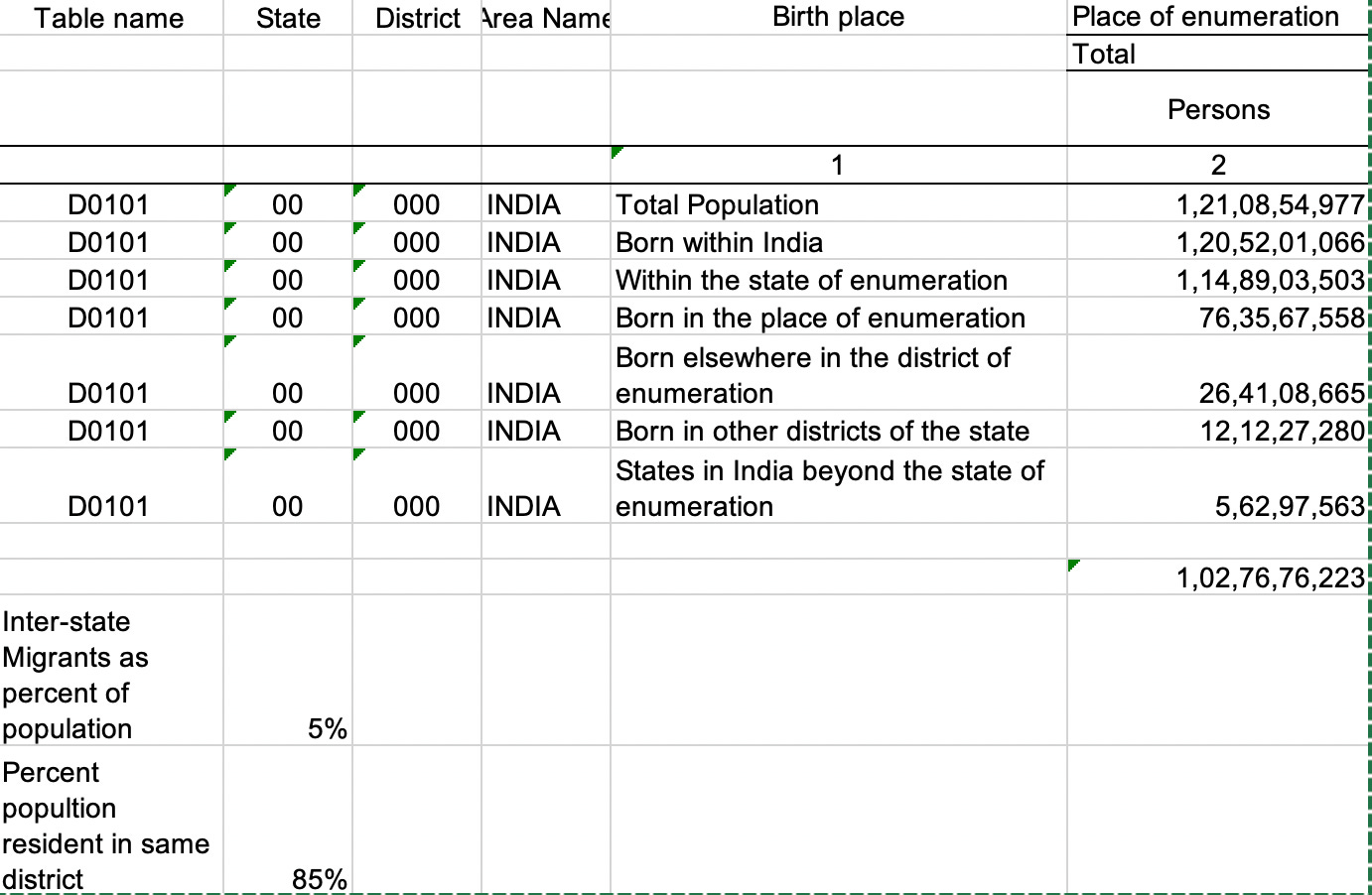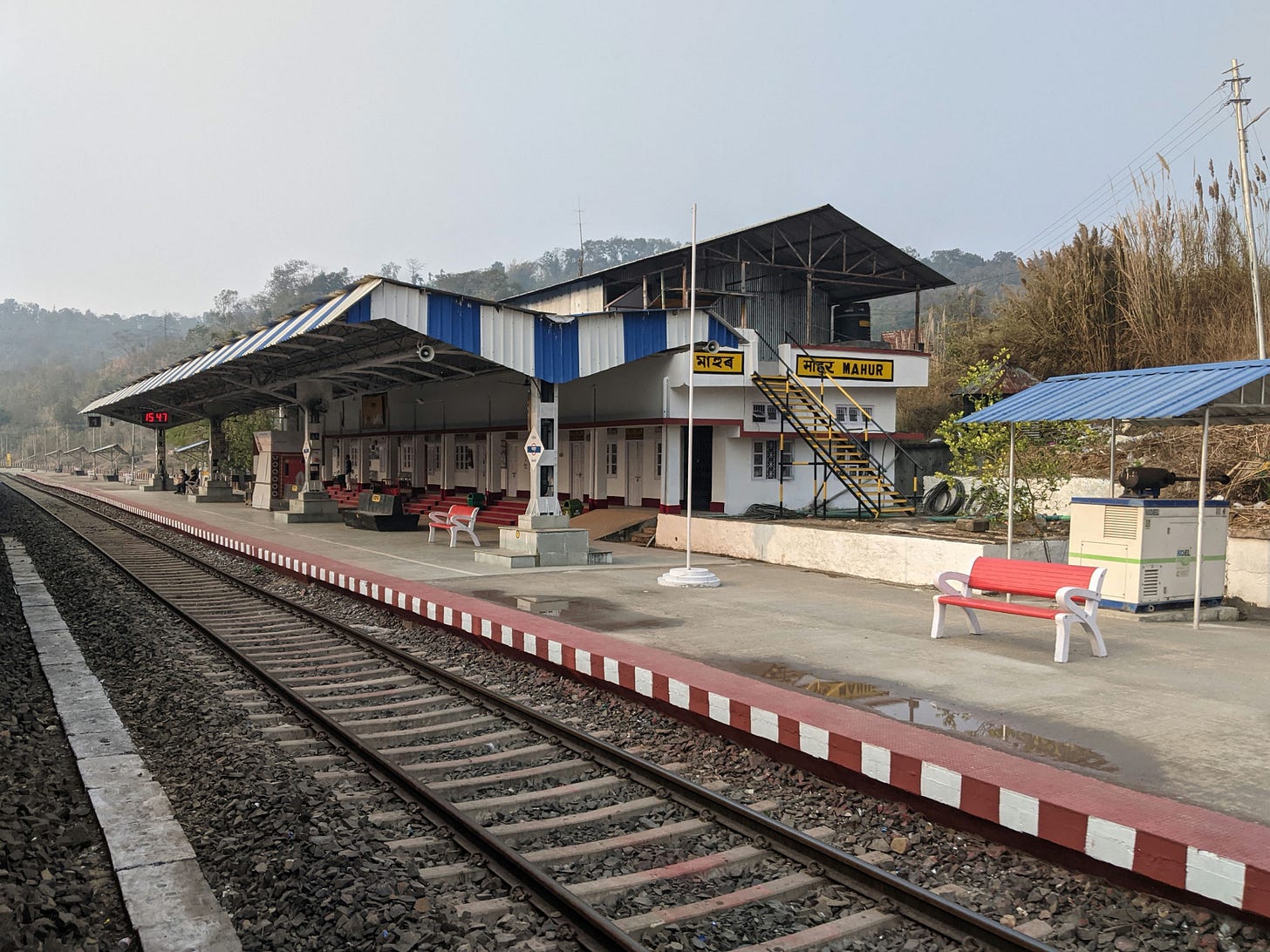87% of India's population lives in the district of their birth
India cannot rely on aggregate state and national numbers, we must make every single district work
Please see a cross-section of youth worker profiles at the end of this post
It's hard to be in India and not feel like its entire population is on the move. Cities are overflowing with people, and every day our trains and buses carry masses of people to urban centers.
However, while the absolute numbers of migrants are astounding, a vast majority of people never leave the district in which they were born. As per the 2011 census, just over a third of India's population were migrants. The bulk of this migration (62%) was within the same district1, and another 26% was between districts of the same state. Only about 5% of the population had migrated outside their home state.

The trend has continued downward. According to two reports - 'Migration in India, 2020–212' from the Ministry of Statistics and Programme Implementation (MoSPI) and the latest working paper3 by the PM's Economic Advisory Council (EAC) - migration has fallen from 37% to just under 29%. Of this, as per our calculations, roughly 60% of the migration is within the same district.
This decline could be due to cities becoming "less welcoming to migrants4" through a "process of sanitisation and formalisation" or due to "improved conditions and opportunities at the places of origin5"
Irrespective, when we put these numbers together, we arrive at this striking statistic: 87% of our population lives in the district of their birth.
This has huge implications for how we think about development of our country and its governance, meaning not least the need to make every single district work at least in fundamentals of education, skilling, and employment for our youth, lest we leave large numbers behind.
At Future of India Foundation, we aim to bring the focus back to districts and ensure that all of India’s youth get meaningful opportunities to participate in India’s growth story - with a first-of-its-kind tool integrating data from 17 government sources and on-ground research to provide a 360° view of youth empowerment – from education and training to employment at the district level.
We will soon release a working prototype for the state of Rajasthan.
In the meantime, we have started profiling youth workers across the country recording their background, aspirations and journey so far. Their stories are very moving, please subscribe and read them on the Future of India Substack. I am also linking to a couple profiles below:
Kanchan Meghwal, Dalit NREGA Mate (Rajasthan)
As a child, I dreamed of becoming a constable. However, life took a different turn after my father passed away and our financial situation worsened. The burden of financial struggles forced me to set my ambitions aside. My mother’s frequent health issues have made things even more difficult, and over time, I had to adapt to a life of challenges and compromises.
Rajesh Das, A Son's Responsibility: Between Obligations and Dreams (Karnataka)
One day my father came to me and said “You’ll have to leave school. I need someone to help me with the farm. The others are still too young, and we’re relying on you now.”
Dolly Kumari, A Childhood Interrupted (West Bengal)
“Sometimes, I feel like it’s too late for me. I don’t know if I can pursue my dreams now. I have shouldered too many responsibilities from a young age—I started working when I was eleven. Things could have been much worse—I could have been married off as a child in my village. My aunt sending me here for work turned out to be a blessing.”
https://blogs.worldbank.org/en/peoplemove/internal-migration-india-grows-inter-state-movements-remain-low
Migration in India 2020-2021, MOSPI
EAC-PM/WP/35/2024
Amitabh Kundu
EAC Working Paper




Thanks for writing this. It leaves me thinking about the good and bad of migration.
A good chunk of my acquaintances (including relatives and classmates from school) have not left the small town Rampur-UP I grew up in. Another chunk have not left the state. I see some of them contributing to improving the conditions in both the town and the state, yet I also see that some of them follow a particular ideology towards life - which may or may not be the road to progress (progress itself is subjective IMO).
My privilege allowed me to move away from the town, district, state and country of my birth. This had a profound impact on my perspective towards everything - life, politics, science. However, I also feel sad that through my exposure to these perspectives, I haven't been able to contribute directly to improving the places of my origin. I often think about the reason for this - whether it is due to lack of opportunities, or my zeal to create those opportunities. I haven't reached an answer yet.
For most of the folks in my circle migrating to a city of opportunity has been the most life changing event.
But given said that everyone would love to be close to home if ample opportunities are available